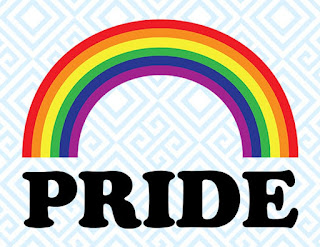I.
For whatever reason, I'm still thinking about Danny Boyle's new six-part series based on the story of the Sex Pistols. And the question that keeps returning is this: Can Anson Boon convincingly play the part of Johnny Rotten?
Or is it the case that, in order to truly inhabit a role, an actor needs the same lived experience [1] as the person they are portraying? Ultimately, what is the relationship between acting and authenticity?
II.
Firstly, let me say this: I know why some people think it important that, for example, black actors play black characters on stage and film and that such roles aren't given to white actors wearing theatrical makeup. I understand the issues surrounding blackface and how it has lent itself to racial stereotyping and, indeed, racist caricature and can see why such a practice is now considered offensive (even when there is no wilful malice or disrespect intended by the actor playing the part).
Similarly, I sympathise with disabled actors who time and again see roles for which they would seem to be ideally suited go to able-bodied performers. It seems discriminatory - and probably is discriminatory. For although the performing arts take place in an aesthetic space that is uniquely different to what most people think of as the real world, that space is not entirely separate from the latter and still unfolds within a wider cultural history and a network of power and politics, privilege and prejudice.
As Howard Sherman writes:
"If we lived in a society, a country, where everyone was indeed equal in
opportunity, then the arguments for paying heed to the realities of
race, ethnicity, gender and disability might be concerns that could be
set aside. But that's far from the case, and if the arts are to be
anything more than a palliative, they must think not just of artifice,
but also about the authenticity and context of what they offer to
audiences." [2]
Unfortunately, whenever someone points this out they are immediately told that the very essence of acting is people pretending to be what they're not; about performance, persona, and pretence; that it's not about the lived reality of an actor, who is paid to wear a mask not bear their soul or expose their true selves.
However, as Sherman goes on to argue, the it's called acting defence is one that often serves to uphold a state of affars in which too many people have been marginalised and unfairly treated for too long; where the lived experience of those who don't determine the rules of the game - including the rules and conventions of the supposedly liberal world of the arts - has been denigrated or dismissed.
III.
Having said that - and this brings us back to Danny Boyle's project and the question I asked at the beginning of this post - one of the key lessons of The Great Rock 'n' Roll Swindle was that anyone can be a Sex Pistol, regardless of their background.
Why? Because it's all about attitude, rather than authenticity; style and swagger, rather than an identity rooted in one's so-called lived experience. As much as Boyle's castration of the Sex Pistols irritates me - click here - the idea that actors can only play people who are the same as them is clearly absurd.
It can be vexing - I wouldn't say offensive - when posh people attempt to portray working class life, or straight actors play gay characters. But, as Julie Burchill says, "if an actor doesn’t look like he’s making fun of someone, we should trust him to give a part his all - and more credit to him if the part is outside of his experience" [3].
So, good luck to Anson Boon in his attempt to play Rotten!
And good luck also to Louis Partridge as Sid Vicious and Maisie Williams as Jordan. These bright young thespians may never quite understand what was so phenomenal about the Sex Pistols, but that needn't detract from their performance and, as Burchill also points out, there's a danger in getting too uptight about all this: for such anxiety about casting "is merely the equity branch of the cultural-appropriation asshattery" [4].
Notes
[1] This moral-ideological notion - increasingly used to negate objective reality - is one I have italicised throughout this post in order to indicate my own scepticism regarding its legitimacy. For those who are interested, it is discussed at length by Brendan O'Neill in a recent essay entitled 'The tyranny of "lived experience"', Spiked, (19 March, 2021): click here.
[2] Howard Sherman, 'The Frightened Arrogance Behind "It’s Called Acting"', (2 August, 2016): click here. Sherman - an arts administrator, advocate and author - was Interim Director of the Alliance for Inclusion in the Arts (New York), from 2013 - 2017. Although I'm sympathetic to his concerns, I worry that his arguments can be extended in a way that ultimately renders acting - and, indeed, even the imaginative creation of characters by writers - almost impossible. In other words, that a call for political correctness ends in a form of woke puritanism.
[3] and [4] Julie Burchill, 'It’s called acting for a reason', Spiked, (21 August, 2018): click here.


